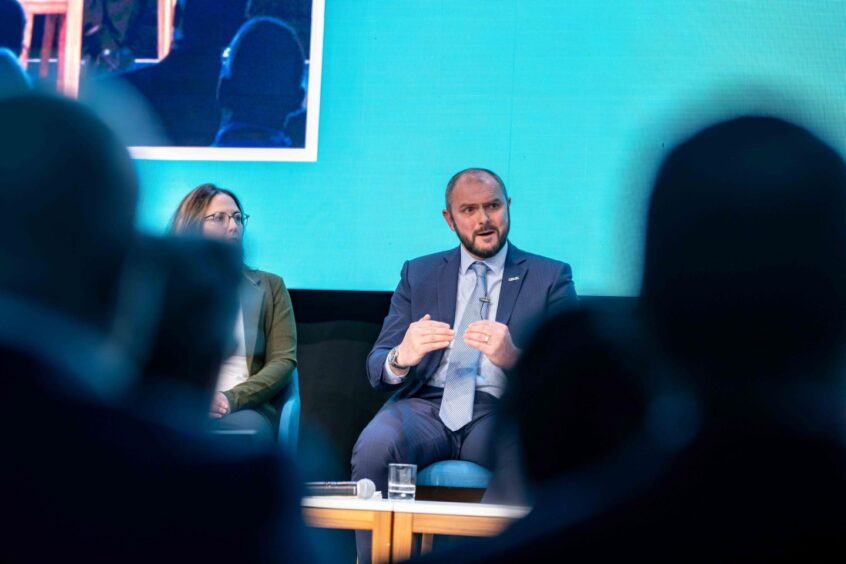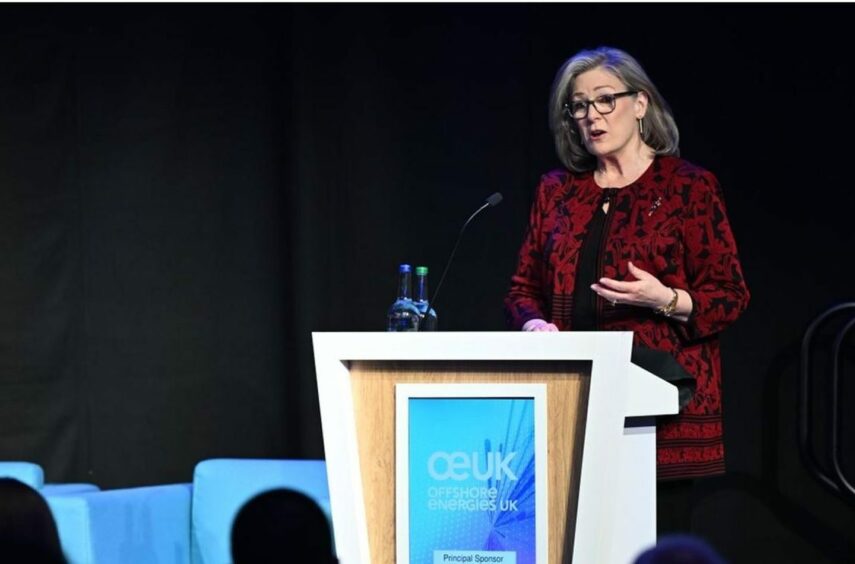
Following its acquisition of Wintershall Dea, Harbour Energy (LON: HBR) found that not all global regions have the same safety standards as their own North Sea assets.
At the Offshore Energies UK (OEUK) HSE conference in Aberdeen on Thursday, Harbour Energy’s managing director of its UK business unit Scott Barr, observed there was “complacency” in the global industry. He was responding to a question about where the North Sea could learn lessons abroad.
Late last year the takeover of the German energy firm was approved in a move that expanded the UK operator’s global footprint.
“Recently, our company has come from operating in two or three countries to seven or eight and as we get to know each other then we get to share knowledge, and we get to get together, it’s a complacency thing,” Barr told delegates.
“We work in an industry where we think everybody has a safety case, our safety critical elements, has our aims, has maintenance management systems, has all of the above that are obviously a part of the story of keeping us safe and part of those barriers. They don’t.”
In September, the UK’s largest producer of oil and gas completed a £8.53 billion takeover of its German rival as the firm aimed to diversify its portfolio in the wake of the UK’s windfall tax.
At the time, chief executive Linda Cook commented: “It marks our fourth and most transformational acquisition since we were founded in 2014, and is another big step forward as we continue to build a large, global independent oil and gas company focused on the safe and responsible production of the oil and gas the world still needs.”
Following the deal, Harbour set out plans to pursue offshore opportunities in Mexico and Indonesia as well as continuing the work Wintershall Dea had been doing in Argentina and North Africa.
“We’ve got such a strong regulator that holds us to account, which is great and which I welcome,” added Barr. “But there is also the opportunity to learn and to share that knowledge and how we do stuff in the North Sea with others.”
He said that domestic safety standards are “almost like a badge of honour” and that UK firms can share best practice and the tools they use in a “here’s one we made earlier” style to ensure “people aren’t having to learn the lessons the really hard way”.
Barr concluded: “I think we should take a lot of the solace and credit for what we’ve done, what we’ve created as an industry and also as a regulatory framework, because not every country has that.”
Harbour celebrates ‘transformational year’ after Wintershall Dea deal
This comes soon after the firm welcomed a “transformational year” in a recent operations update.
The firm’s CEO said: “2024 was a transformational year with the completion of the Wintershall Dea transaction delivering a step change in our scale and geographic diversification, improving our margins, increasing our reserve life and expanding our resource base significantly.”
Harbour Energy reported a boost to revenues and production after the takeover and intends to publish its full year results for 2024 on 6 March when it will also hold a capital markets day for investors.
This article was edited to 8pm to clarify that statements reported comment on how global standards vary from those in the North Sea.
Recommended for you


 © Supplied by Offshore Energies UK
© Supplied by Offshore Energies UK